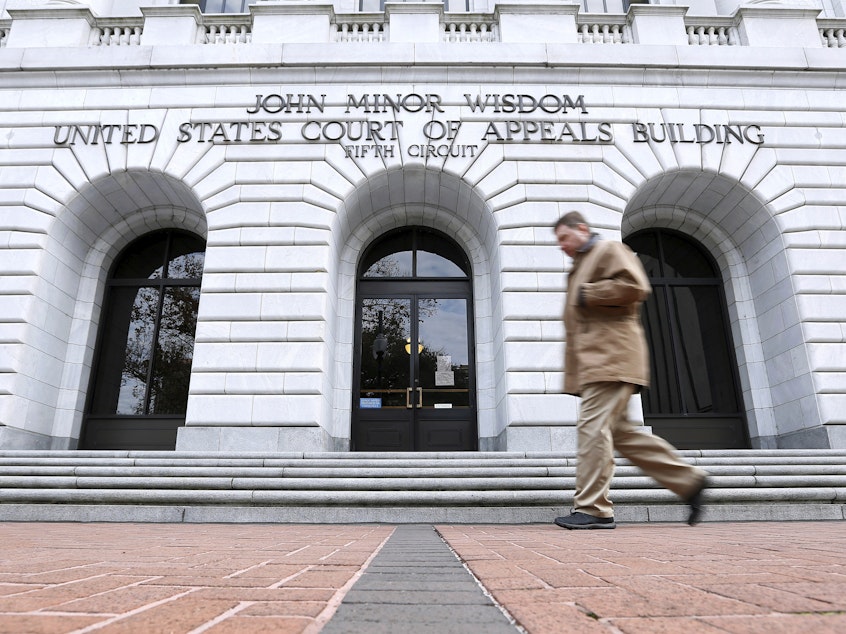U.S. appeals court preserves partial access to abortion pill, but with tighter rules

A federal appeals court will allow partial access to the abortion drug mifepristone while a high-profile federal case plays out, but with new limitations on how the drug can be dispensed.
The U.S. Court of Appeals for the 5th Circuit says the drug, used in most medication abortions in the United States, remains approved for use up to seven weeks of pregnancy while the case is being appealed.
Previously, the drug was approved for up to 10 weeks. The ruling also says mifepristone can no longer be sent in the mail at least for now.
The Biden administration can appeal the ruling to the Supreme Court.
The Biden administration had asked the court for an emergency order blocking a decision from a lower-court judge in Texas. He'd issued an injunction set to take effect Friday that would block the Food and Drug Administration's approval of the drug, which has been on the market for more than 20 years.
Sponsored
Late last week, U.S. District Judge Matthew Kacsmaryk sided with anti-abortion rights groups that sued the Food and Drug Administration over its approval of the abortion pill mifepristone. He issued a ruling that would invalidate the drug's approval beginning this Friday unless the appeals court intervenes.
On Monday, the Department of Justice asked the 5th U.S. Circuit Court of Appeals for an emergency stay of Kacsmaryk's decision while the court hears the case.
In their request, Justice Department lawyers argued that "the district court upended decades of reliance by blocking FDA's approval of mifepristone and depriving patients of access to this safe and effective treatment, based on the court's own misguided assessment of the drug's safety."
Mifepristone was approved by the FDA in 2000 and is now used in combination with another drug, misoprostol, in nearly all medication abortions in the United States.
The appeals court's decision means mifepristone will continue to be at least partially available while the case plays out.
Sponsored
It's unclear how the latest decision will interact with a ruling in a separate federal case in Washington state, filed by attorneys general from 17 states and the District of Columbia who are seeking to preserve access to the pills.
In that decision, also issued Friday shortly after Kacsmaryk released his ruling, U.S. District Judge Thomas O. Rice said the FDA was prohibited from "altering the status quo and rights as it relates to the availability of Mifepristone."
Washington state Attorney General Bob Ferguson, one of the leaders of that effort, told NPR he believes it will preserve access to mifepristone for people in those 17 states and D.C., unless a higher court says otherwise.
The Justice Department also filed a motion Monday asking Rice to clarify the meaning of his ruling, given there appears to be "tension" with Kacsmaryk's nationwide injunction.
Meanwhile, several states led by Democratic governors have begun stockpiling abortion pills — either mifepristone or another drug, misoprostol. Misoprostol is usually used in combination with mifepristone but can be used alone to induce abortion.
Sponsored
Massachusetts Gov. Maura Healey and Washington Gov. Jay Inslee have announced that their states have begun stockpiling mifepristone in the event that access is disrupted. California Gov. Gavin Newsom and New York Gov. Kathy Hochul say their states are stockpiling tens of thousands of doses of misoprostol. [Copyright 2023 NPR]


